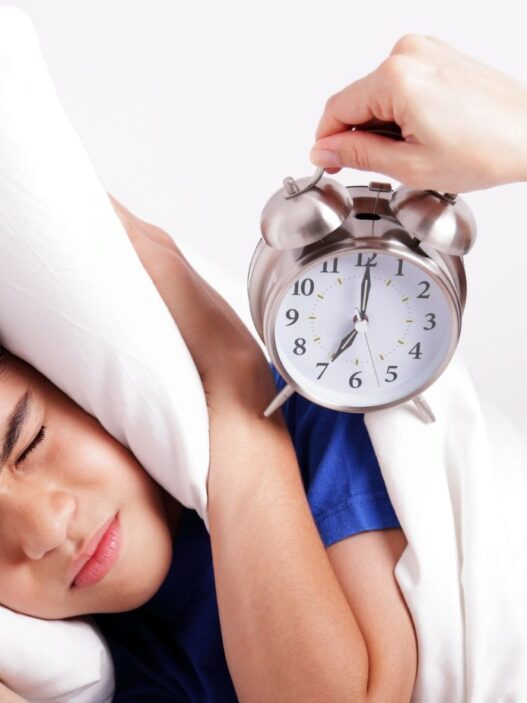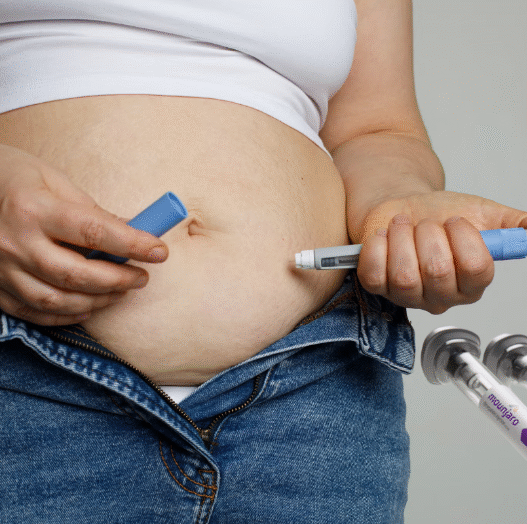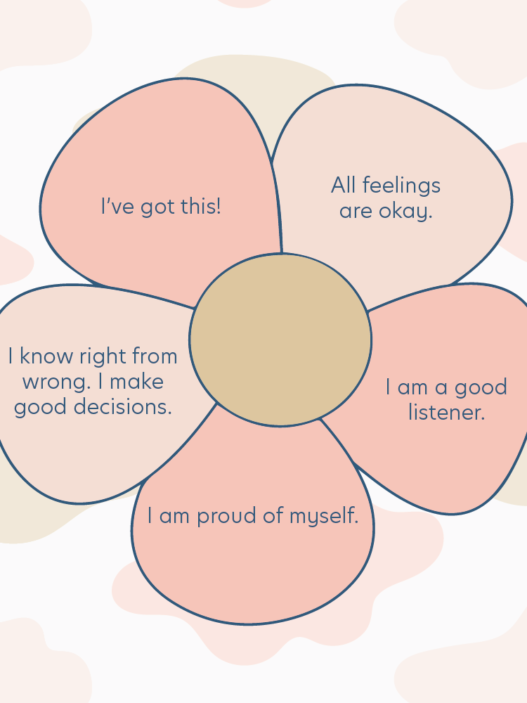During deep sleep, also referred to as slow-wave sleep (SWS) or NREM Stage 3, the body enters a state of deep relaxation while brain waves decrease to delta frequencies. Currently, there is a significant recovery and treatment of memory, a decrease in breathing and heart rate, and the muscles are deep and relaxed.
Deep sleep offers more than a sense of rest; it aids in:
- Physical restoration – including support for the immune system, muscle development, and tissue healing.
- Cognitive well-being – which reduces the likelihood of dementia and Alzheimer’s by aiding in memory consolidation and facilitating the removal of metabolic waste from the brain.
- Metabolic equilibrium – which reduces the likelihood of conditions such as type 2 diabetes and aids in regulating blood sugar levels.
Even a brief absence from deep sleep can have negative effects on learning, increase grogginess (sleep inertia), increase the risk of chronic diseases, and possibly increase the risk of Alzheimer’s.
What Are The Basic Deep Sleep Requirements For Adults?
Guiding Principles
Most sources agree that adults need one to two hours of deep sleep each night, or about 10 to 25 percent of their overall sleep duration. ([Sleep Foundation], [Healthline],[welltech.com], [Good Sleep Hub])
For example, if you obtain 7-9 hours of rest:
- 10% of a deep sleep period lasts 42-54 minutes.
- 20% lasts 84-108 minutes25% lasts 105-135 minutes.
- Adults spend between 40 and 110 minutes a night, or 10 to 20%, in deep sleep, according to the Sleep Foundation.
Estimates for each night:
- Healthline recommends a deep sleep of 1-2 hours.
- WellTech: 20-25%, or ~1.5-2 hours, of sleep is deep.
- Verywell Health: Adults need ~20-25% sleep per night, which is equivalent to 1-2 hours of deep sleep.
- Good Sleep Hub: 13-23% of general sleep, or 1-2 hours.Pure HealthCare Search: Adults (18-60) receives 1.3 to 1.8 hours.

In conclusion, based on the total duration of sleep, most healthy adults should strive for 1-2 hours of deep sleep each night. This represents about 10-25% of typical sleep.
Age Is Important
Your needs and habits for deep changes in sleep are depending on your life:
- Children And Teens – 1.5-3 hours of rest is important for mental development.

- Adults (18-60) – Approximately 1.5-2 hours per night.
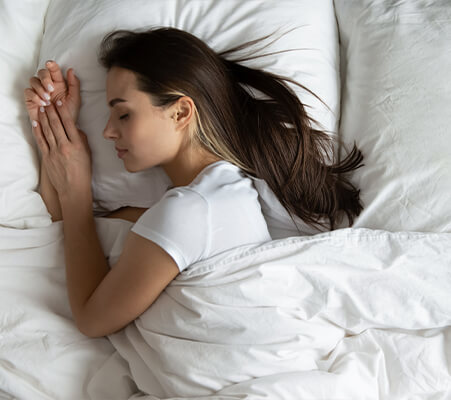
- Elderly people (ages over 65) – Generally deep sleep decreases, on average 1-1.5 hours per night.
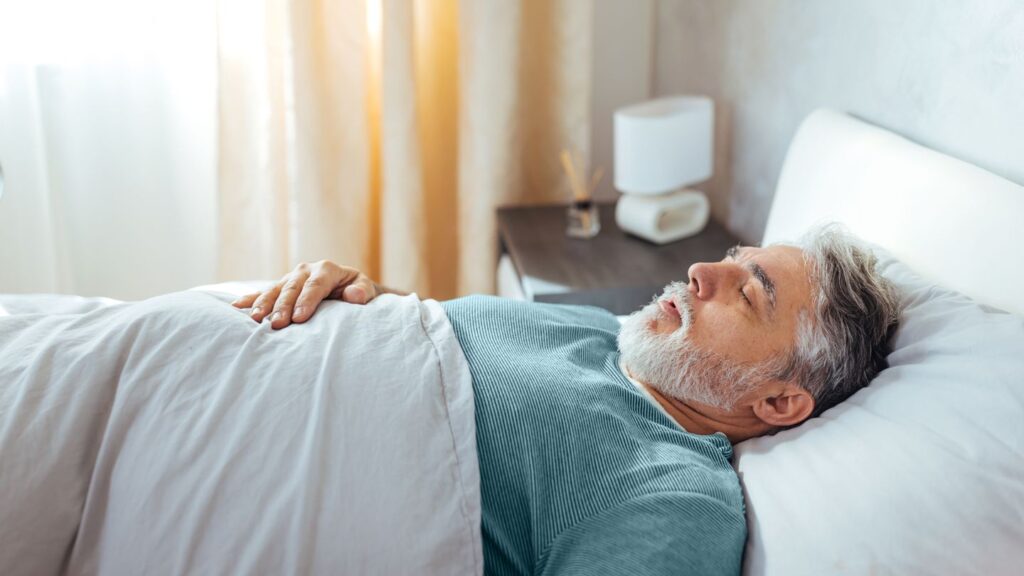
Therefore, getting enough high quality sleep is important at any age, but young people need deeper sleep and gradually decrease as they are older.
Deep Sleep Variations
Different factors affect deep sleep patterns. This means that each night is different.
- Deprived dormant – Inadequate rest can lead to the fact that this leads to an increase in the period spent on this stage.
- Regarding lifestyle factors – deep sleep can be significantly affected by physical exercise, menstrual stages, stress levels, health issues (such as apnea and insomnia), and medications.
- Personal variation – The amount of sleep you need varies considerably. Some people only need five hours, while others need 11 hours.
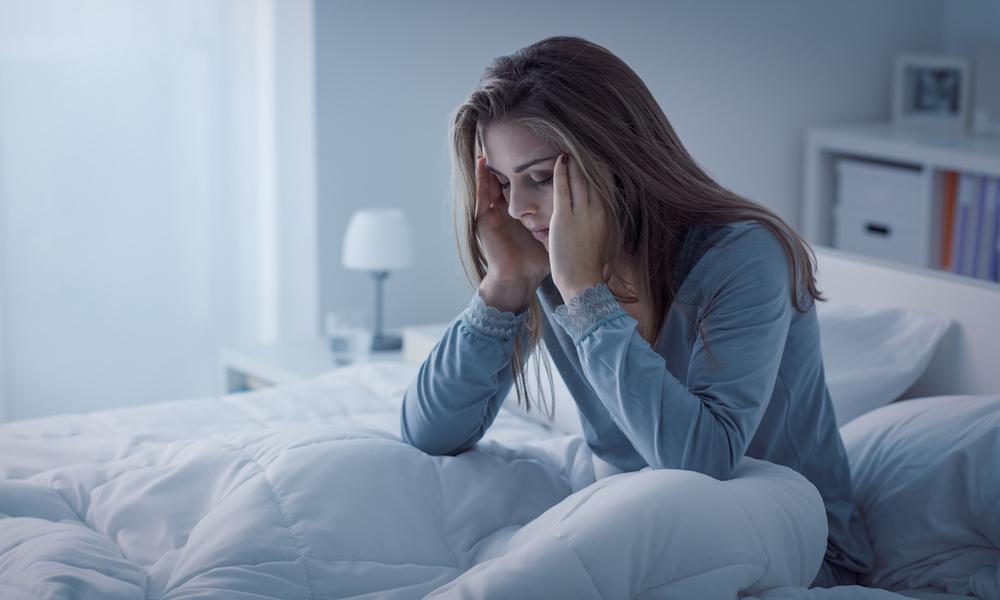
In addition, some sleep researchers assert that the brain regulates itself, changing the intensity of sleep according to biological needs. If you have enough overall dreams, your mind usually maintains a natural balance throughout all sleep stages.
Advice On How To Get Maximum Return On Deep Sleep (And General Sleep Quality)
Do you want to sleep deeper? Beware of behaviors that contribute to proper sleep hygiene.
1. Sleep period priority
To reach a sufficiently deep sleep, try out the7-9 hours per night.

2. Maintain a Regular Schedule
To establish your body’s rhythm, go to bed and wake up at the same time every day, including on the weekends.
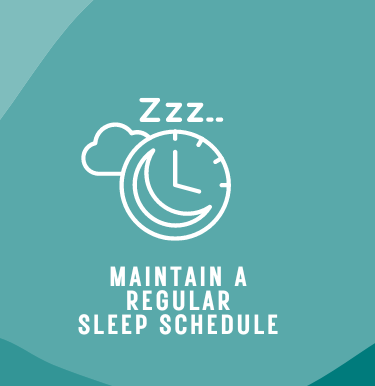
3. Improves sleep control
To help you fall asleep faster and reach a deeper stage of sleep, save your room with a cool or cozy temperature, ensuring it is dark, calm and comfortable.
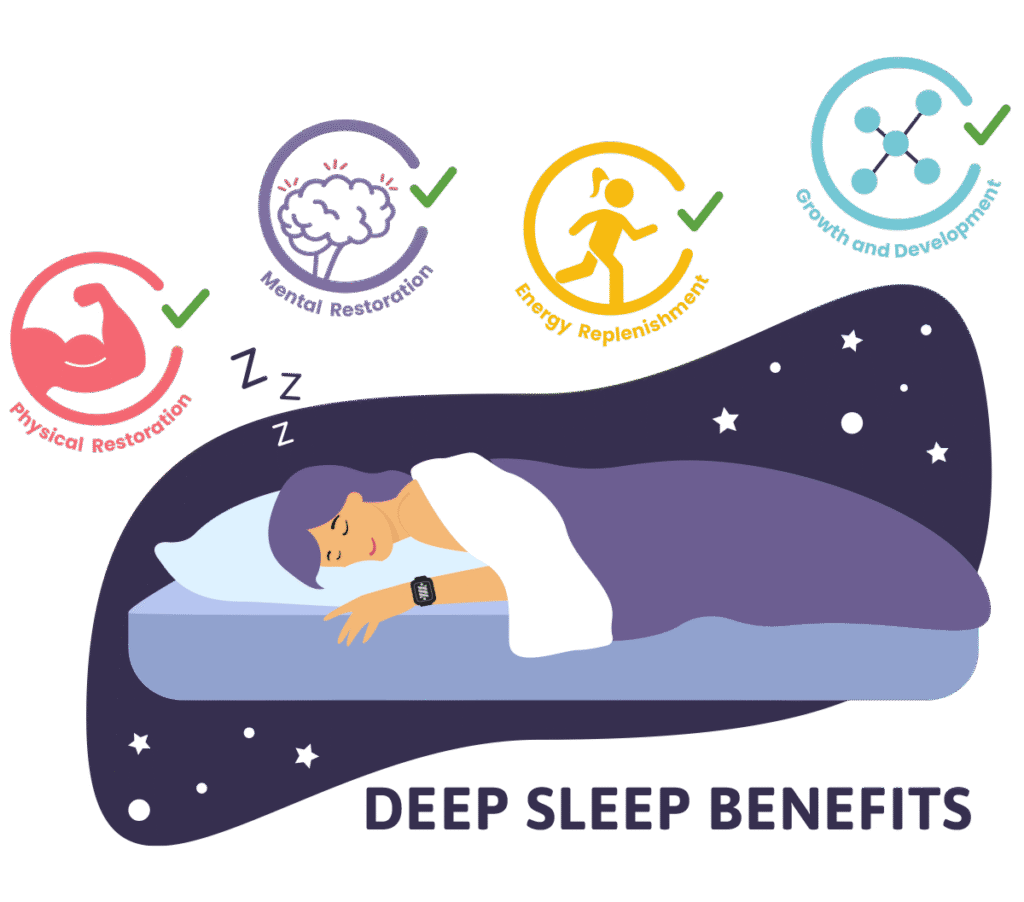
4. Relax Before Bedtime
Participate in calming activities to unwind; avoid screens just before sleep and reduce anxious or pre-sleep thoughts

5. Steer clear of interrupters
Reduce alcohol consumption at night and avoid caffeine in the afternoon and evening.
6. Continue to be active, but not too late.
Frequent exercise promotes better sleep; to prevent overstimulation, it is best to do it several hours before bed.

Pay attention to your energy levels. Waking up feeling refreshed and alert is often a sign of getting enough deep sleep.
How To Gauge Whether You’re Getting Enough Deep Sleep
- Trackers that are wearable – Even though they’re not perfect, gadgets like watches and rings can display patterns in the stages of sleep over time.
- Polysomnography (Sleep Lab) – The gold standard, though not usually necessary unless there’s a suspected sleep disorder.
Final Take
Although everyone’s shift through sleep stages varies, aiming for 1 to 2 hours of deep sleep per night about 10–25% of total sleep time – is a solid goal for most healthy adults. Young people need more; older adults naturally get less.
Instead of fixating on how much deep sleep do you need?, cultivate the habits that support sleep quality and consistency, your brain will handle the deep-sleep tuning. Make sure to consult with healthcare experts if you are facing sleeping issues.











